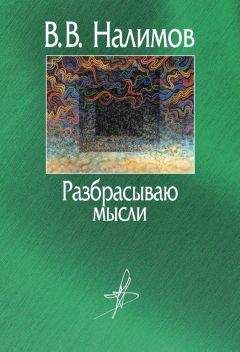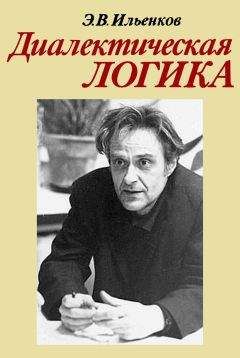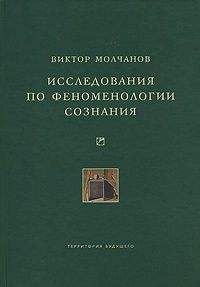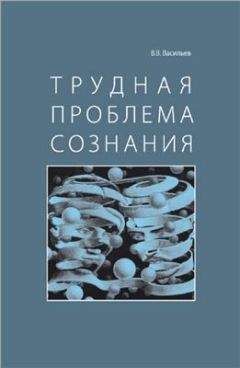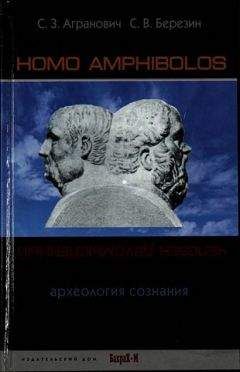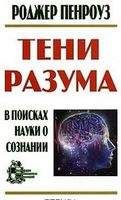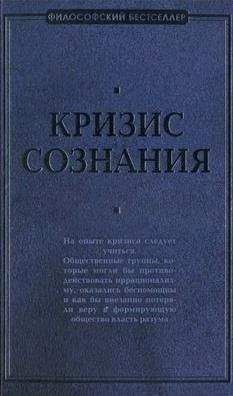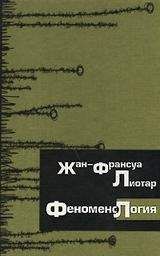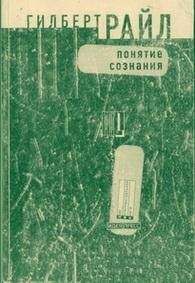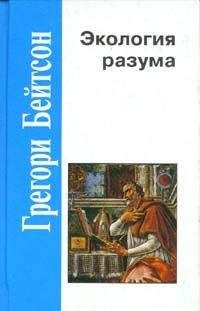Дэвид Чалмерс - Сознающий ум. В поисках фундаментальной теории
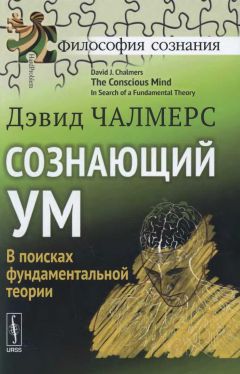
Скачивание начинается... Если скачивание не началось автоматически, пожалуйста нажмите на эту ссылку.
Жалоба
Напишите нам, и мы в срочном порядке примем меры.
Описание книги "Сознающий ум. В поисках фундаментальной теории"
Описание и краткое содержание "Сознающий ум. В поисках фундаментальной теории" читать бесплатно онлайн.
Эта книга, впервые опубликованная в 1996 году, стала одним из самых заметных философских трактатов конца XX века. В наши дни уже не удастся найти серьезных работ по проблеме сознания, в которых не было бы ссылок на Чалмерса.
«Сознающий ум» — увлекательный философский рассказ о глубочайших парадоксах и тайнах сознания. Это провокативная работа, в которой сделана попытка обосновать «натуралистический дуализм», исходя из тезиса автора о нефизической природе сознания и его зависимости от функциональных схем в мозге. Чалмерс также утверждает, что его теория открывает новые перспективы для интерпретации квантовой механики и позволяет говорить о возможности сознательных роботов.
Ясность изложения, смелость идей, изобретательность мысленных экспериментов, точность рассуждений и широкая эрудиция автора делают эту книгу настоящим подарком для всех, кто интересуется философией.
1991. Cool red. Philosophical Psychology 4:27–40.
1993. On leaving out what it’s like. In M. Davies and G. Humphreys, eds., Consciousness: Psychological and Philosophical Essays. Oxford: Blackwell.
Lewis D. 1966. An argument for the identity theory. Journal of Philosophy 63:17–25.
1972. Psychophysical and theoretical identifications. Australasian Journal of Philosophy
50:249-58.
1973. Counterfactuals. Cambridge, Mass.: Harvard University Press.
1974. Radical interpretation. Synthese 23:331-44.
1979. Attitudes de dicto and de se. Philosophical Review 88:513-45.
1983a. Extrinsic properties. Philosophical Studies 44:197-200
1983b. New work for a theory of universals. Australasian Journal of Philosophy 61:343-77.
1986a. On the Plurality of Worlds. Oxford: Blackwell.
1986b. Philosophical Papers. Vol. 2. New York: Oxford University Press.
1990. What experience teaches. In W. Lycan, ed., Mind and Cognition. Oxford: Blackwell.
1994. Reduction of mind. In S. Guttenplan, ed., A Companion to the Philosophy of Mind.
Oxford: Blackwell.
Libet B. 1993. The neural time factor in conscious and unconscious events. In Experimental and Theoretical Studies of Consciousness. Ciba Foundation Symposium 174. New York: Wiley.
Loar В. 1990. Phenomenal states. Philosophical Perspectives 4:81-108.
Lockwood M. 1989. Mind, Brain, and the Quantum. Oxford: Blackwell.
1992. The grain problem. In H. Robinson, ed., Objections to Physicalism. Oxford:
Oxford University Press.
Logothetis N., and J. D. Schall. 1989. Neuronal correlates of subjective visual perception. Science 245:761-63.
London F., and E. Bauer. 1939. The theory of observation in quantum mechanics (in French). Actualitйs scientifiques et industrielles, no. 775. [English translation in Wheeler and Zurek 1983]
Lucas J. R. 1961. Minds, machines and Gуdel. Philosophy 36:112-27.
Lycan W. G. 1973. Inverted spectrum. Ratio 15:315-19
1987. Consciousness. Cambridge, Mass.: MIT Press.
1995. A limited defense of phenomenal information. In T. Metzinger, ed., Conscious
Experience. Paderbom: Schуningh.
1996. Consciousness and Experience. Cambridge, Mass.: MIT Press.
Mackay D. M. 1969. Information, Mechanism, and Meaning. Cambridge, Mass.: MIT Press.
Mackie J. L. 1974. The Cement of the Universe. Oxford: Oxford University Press.
1977. Ethics: Inventing Right and Wrong. Harmondsworth: Penguin Books.
Marks L. E. 1978. The Unity of the Senses: Interrelations among the Modalities. New York: Academic Press.
Matzke /)., ed. 1993. Proceedings of the 1992 Workshop on Physics and Computation. Los Alamitos, Calif.: IEEE Computer Society Press.
, ed. 1995. Proceedings of the 1994 Workshop on Physics and Computation. Los Alamitos,
Calif.: IEEE Computer Society Press.
Maxwell G. 1978. Rigid designators and mind‑brain identity. In C. W. Savage, ed., Perception and Cognition: Issues in the Foundations of Psychology. Minnesota Studies in the Philosophy of Science, vol. 9. Minneapolis: University of Minnesota Press.
McCarthy J. 1979. Ascribing mental qualities to machines. In M. Ringle, ed., Philosophical Perspectives in Artificial Intelligence. Atlantic Highlands, N. J.: Humanities Press.
McDowell J. 1994. Mind and World. Cambridge, Mass.: Harvard University Press.
McGinn C. 1977. Anomalous monism and Kripke’s Cartesian intuitions. Analysis 2:78–80.
1989. Can we solve the mind‑body problem? Mind 98:349-66.
McLaughlin B. P. 1992. The rise and fall of the British emergentists. In A. Beckermann, H. Flohr, and J. Kim, eds., Emergence or Reduction? Prospects for Nonreductive Physicalism. Berlin: De Gruyter.
1995. Varieties of supervenience. In E. E. Savellos and U. D. Yalcin, eds., Supervenience:
New Essays. Cambridge: Cambridge University Press.
McMullen C. 1985. «Knowing what it’s like» and the essential indexical. Philosophical Studies 48:211-33.
Meehl P. E., and W. Sellars. 1956. The concept of emergence. In H. Feigl and M. Scriven, eds., The Foundations of Science and the Concept of Psychology and Psychoanalysis. Minnesota Studies in the Philosophy of Science, vol. 1. Minneapolis: University of Minnesota Press.
MolnarG. 1969. Kneale’s argument revisited. Philosophical Review 78:79–89.
Moore G. E. 1922. Philosophical Studies. London: Routledge and Kegan Paul.
Mьller, G. E. 1896. Zur Psychophysik der Gesichtsempfindungen. Zeitschriftfьr Psychologie und Physiologie der Sinnesorgane 10:1-82.
Nagel T. 1970. Armstrong on the mind. Philosophical Review 79:394–403.
1974. What is it like to be a bat? Philosophical /tev/ew4:435-50.
1983. The objective self. In C. Ginet and S. Shoemaker, eds., Knowledge and Mind:
Philosophical Essays. New York: Oxford University Press.
1986. The View from Nowhere. New York: Oxford University Press.
Natsoulas T. 1978. Consciousness. American Psychologist 33:906-14.
Nelkin N. 1989. Unconscious sensations. Philosophical Psychology 2:129-41.
1993. What is consciousness? Philosophy of Science 60:419-34.
Nemirow L. 1990. Physicalism and the cognitive role of acquaintance. In W. Lycan, ed., Mind and Cognition. Oxford: Blackwell.
Newell Л. 1992. SOAR as a unified theory of cognition: Issues and explanations. Behavioral and Brain Sciences 15:464-92.
Newton N. 1989. Machine understanding and the Chinese Room. Philosophical Psychology 2:207-15.
Nida‑Rьmelin, M. 1995. What Mary couldn’t know: Belief about phenomenal states. In T. Met- zinger, ed., Conscious Experience. Paderbom: Schуningh.
1996. Pseudonormal vision: An actual case of qualia inversion? Philosophical Studies.
Papineau D. 1993. Philosophical Naturalism. Oxford: Blackwell.
Parfit D. 1984. Reasons and Persons. Oxford: Oxford University Press.
Peacocke C. 1992. Scenarios, concepts, and perception. In T. Crane, ed., The Contents of Experience. Cambridge: Cambridge University Press.
Penrose R. 1987. Quantum physics and conscious thought. In B. Hiley and Peat, eds., Quantum Implications: Essays in Honor of David Bohm. New York: Methuen.
1989. The Emperor’s New Mind. Oxford: Oxford University Press. (Рус. пер.: Пенроуз P.
Новый ум короля: О компьютерах, мышлении и законах физики. Издательство ЛКИ/URSS, 2011.)
1994. Shadows of the Mind. Oxford: Oxford University Press.
Perry J. 1979. The problem of the essential indexical. Nous 13:3-21.
Petrie B. 1987. Global supervenience and reduction. Philosophy and Phenomenological Research 48:119-30.
Place U. T. 1956. Is consciousness a brain process? British Journal of Psychology 47:44–50.
Plantinga A. 1976. Actualism and possible worlds. Theoria 42:139-60.
Putnam H. 1960. Minds and machines. In S. Hook, ed., Dimensions of Mind. New York: New York University Press.
1975. The meaning of «meaning.» In K. Gunderson, ed., Language, Mind, and Knowledge. Minneapolis: University of Minnesota Press.
1981. Reason, Truth, and History. Cambridge: Cambridge University Press.
1983. Possibility and necessity. In Philosophical Papers. Vol. 3. Cambridge: Cambridge
University Press.
1988. Representation and Reality. Cambridge, Mass.: MIT Press.
Pylyshyn Z. 1980. The «causal power» of machines. Behavioral and Brain Sciences 3:442-44.
Quine W. V. 1951. Two dogmas of empiricism. Philosophical Review 60:20–43.
1969. Prepositional objects. In Ontological Relativity and Other Essays. New York:
Columbia University Press.
Rensink R. A., J. K. O’Regan, and J. J. Clark. 1995. Image flicker is as good as saccades in making large scene changes invisible. Perception 24 (suppl.):26–27.
Rey G. 1982. A reason for doubting the existence of consciousness. In R. Davidson, S. Schwartz, and D. Shapiro, eds., Consciousness and Self‑Regulation. Vol 3. New York: Plenum.
1986. What’s really going on in Searle’s «Chinese Room.» Philosophical Studies 50:169-85.
1992. Sensational sentences reversed. Philosophical Studies 68:289–319.
Reynolds C. 1987. Flocks, herds, and schools: A distributed behavioral model. Computer Graphics 21:25–34.
Robinson H. 1976. The mind‑body problem in contemporary philosophy. Zygon 11:346-60.
1982. Matter and Sense. Cambridge: Cambridge University Press.
Robinson W. S. 1988. Brains and People: An Essay on Mentality and Its Causal Conditions. Philadelphia: Temple University Press.
Rosenberg G. H. 1996. Consciousness and causation: Clues toward a double‑aspect theory. Manuscript, Indiana University.
Rosenthal D. М. 1996. A theory of consciousness. In N. Block, O. Flanagan, and G. Gьzeldere, eds., The Nature of Consciousness. Cambridge, Mass.: MIT Press.
Russell B. 1927. The Analysis of Matter. London: Kegan Paul.
Ryle G. 1949. The Concept of Mind. London: Hutchinson.
Savage C. W. 1970. The Measurement of Sensation. Berkeley: University of California Press.
Savitt S. 1982. Searle’s demon and the brain simulator reply. Behavioral and Brain Sciences 5:342-43.
Sayre К. M. 1976. Cybernetics and the Philosophy of Mind. Atlantic Highlands, N. J.: Humanities Press.
Sayre‑McCord G. 1988. Introduction: The many moral realisms. In G. Sayre‑McCord, ed., Essays on Moral Realism. Ithaca, N. Y.: Cornell University Press.
Schacter D. L. 1989. On the relation between memory and consciousness: Dissociable interactions and conscious experience. In H. Roediger and F. Craik, eds., Varieties of Memory and Consciousness: Essays in Honor of Endel Tulving. Hillsdale, N. J.: Erlbaum.
Schlick M. 1932. Positivism and Realism. Erkenntnis 3.
1938. Form and content: An introduction to philosophical thinking. In Gesammelte
Aufsatze 1926–1936. Vienna: Gerold [Reprinted in H. L. Mulder and B. van de Velde‑Schlick, eds., Philosophical Papers. Dordrecht: Reidel, 1979]
Seager W. E. 1988. Weak supervenience and materialism. Philosophy and Phenomenological Research 48:697–709.
1991. Metaphysics of Consciousness. London: Routledge.
Searle J. R. 1980. Minds, brains, and programs. Behavioral and Brain Sciences 3: 417-24.
1984. Minds, Brains and Science. Cambridge, Mass.: Harvard University Press.
1990a. Consciousness, explanatory inversion and cognitive science. Behavioral and Brain
Sciences 13:585–642.
1990b. Is the brain a digital computer? Proceedings and Addresses of the American
Philosophical Association 64:21–37.
1992. The Rediscovery of the Mind. Cambridge, Mass.: MIT Press.
Sellars W. 1956. Empiricism and the philosophy of mind. In H. Feigl and M. Scriven, eds., The Foundations of Science and the Concepts of Psychology and Psychoanalysis. Minnesota Studies in the Philosophy of Science, vol. 1. Minneapolis: University of Minnesota Press.
Подписывайтесь на наши страницы в социальных сетях.
Будьте в курсе последних книжных новинок, комментируйте, обсуждайте. Мы ждём Вас!
Похожие книги на "Сознающий ум. В поисках фундаментальной теории"
Книги похожие на "Сознающий ум. В поисках фундаментальной теории" читать онлайн или скачать бесплатно полные версии.
Мы рекомендуем Вам зарегистрироваться либо войти на сайт под своим именем.
Отзывы о "Дэвид Чалмерс - Сознающий ум. В поисках фундаментальной теории"
Отзывы читателей о книге "Сознающий ум. В поисках фундаментальной теории", комментарии и мнения людей о произведении.





